How many times has it happened that you think of an old show you used to love watching and wonder what the actors are doing after so many years? I guess many of you that have seen “Little House on the Prairie” and were eager to see each new adventure of the family living on the farm in Plum Creek near Walnut Grove, Minnesota, would love to know what the actors are up to these days.
Those fans who were fond of the actress playing Mary Ingalls, beautiful Melissa Sue Anderson, were convinced she would continue being part of their life through the small screens, but she had other plans.
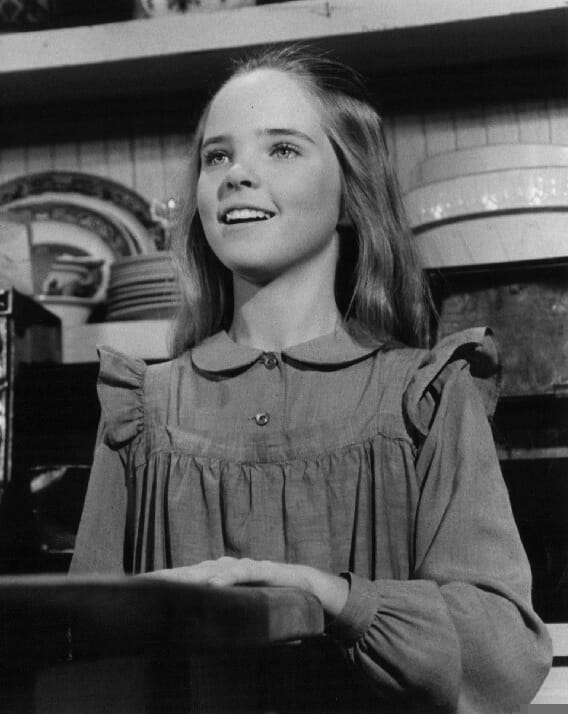
Today, she speaks of her decision to leave Hollywood behind and move to Canada.
This actress started her acting career playing guest roles, and had her way into the showbiz when she became one of the central figures of “Little House on the Prairie.” Her acting brought her several nominations for Best Lead Actress in a Drama Series, and her fans knew she deserved it.
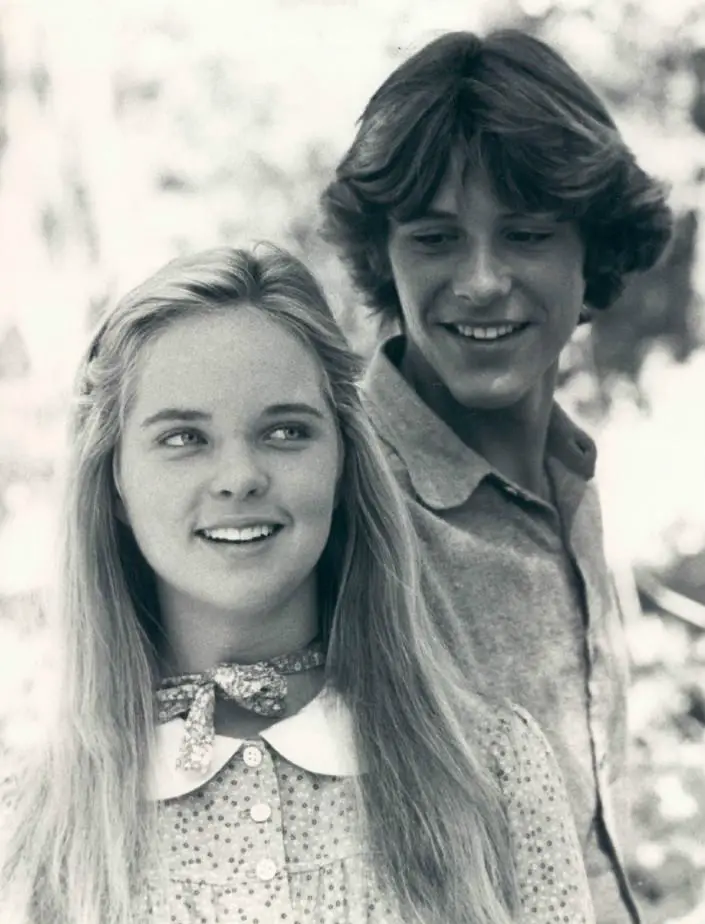
Speaking of her experience filming this drama that made her famous, back in 2010, Anderson told Pop Entertainment, “I’m lucky that there even was a character to play, because in the book, there isn’t much of one. Laura [Ingalls, author of the Little House novels upon which the series was based and the story was centered] was a quite older woman when she wrote the books. She was remembering the best of her life. The characters of Ma and Mary didn’t factor in a lot. There was a lot of Laura and Pa and Laura and Jack the dog and Laura and Mr. Edwards, but there wasn’t a lot of Mary. I’m fortunate that they discovered that I could act.”
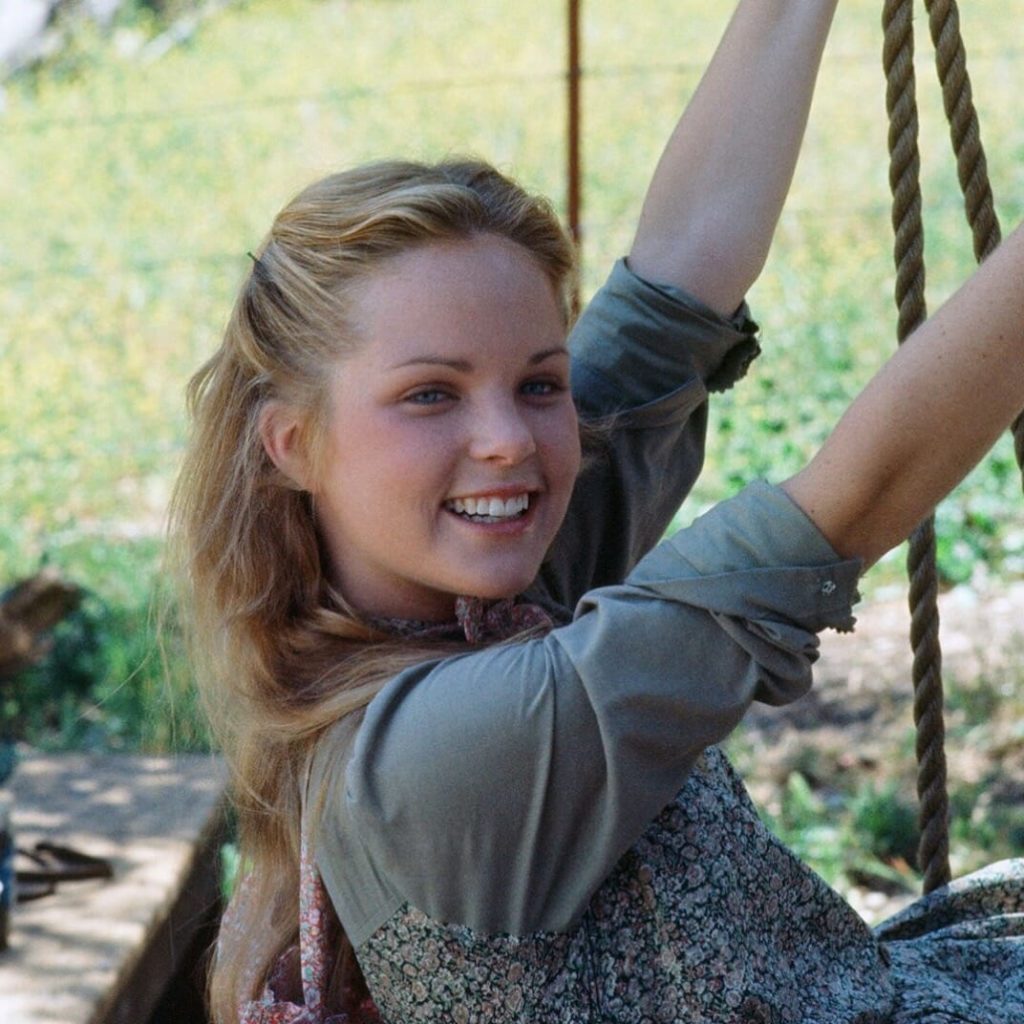
She tried herself in other minor roles after Mary Ingalls, but then in 1990 she got married to television producer Michael Sloan and moved to Montreal in 2002 with her husband and their two children, daughter Piper and son Griffin.
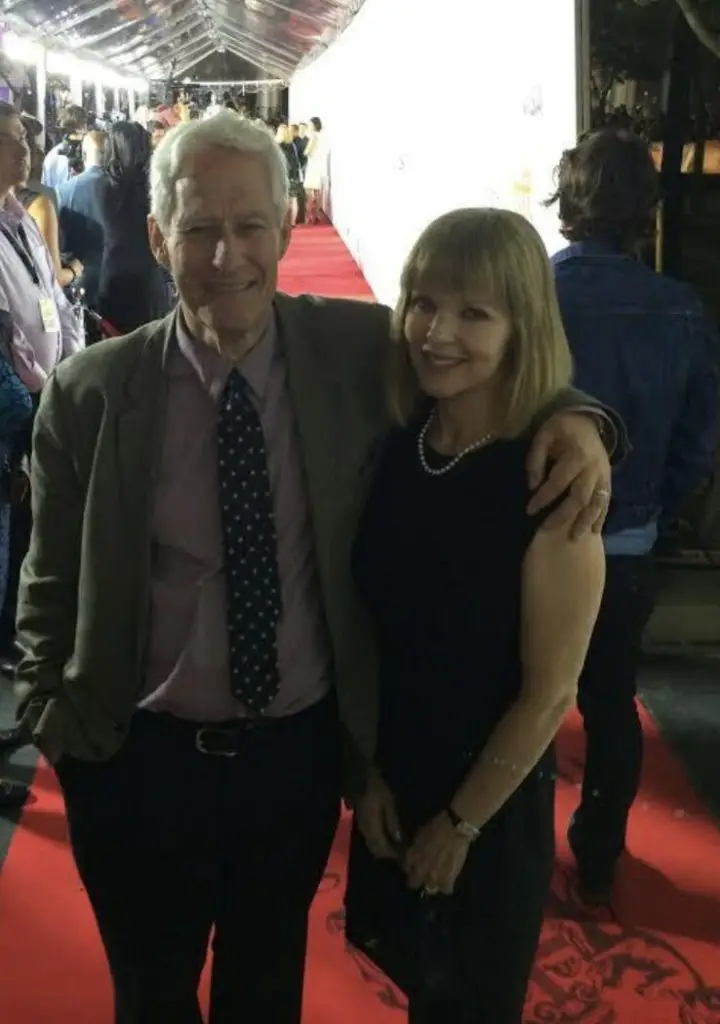
In 2007, the family became Canadian citizens and with the new life came new commitments, so Anderson decided to let go of the showbiz because she wanted to spend more time with her kids and didn’t want them to feel pressured to pursue acting careers themselves.
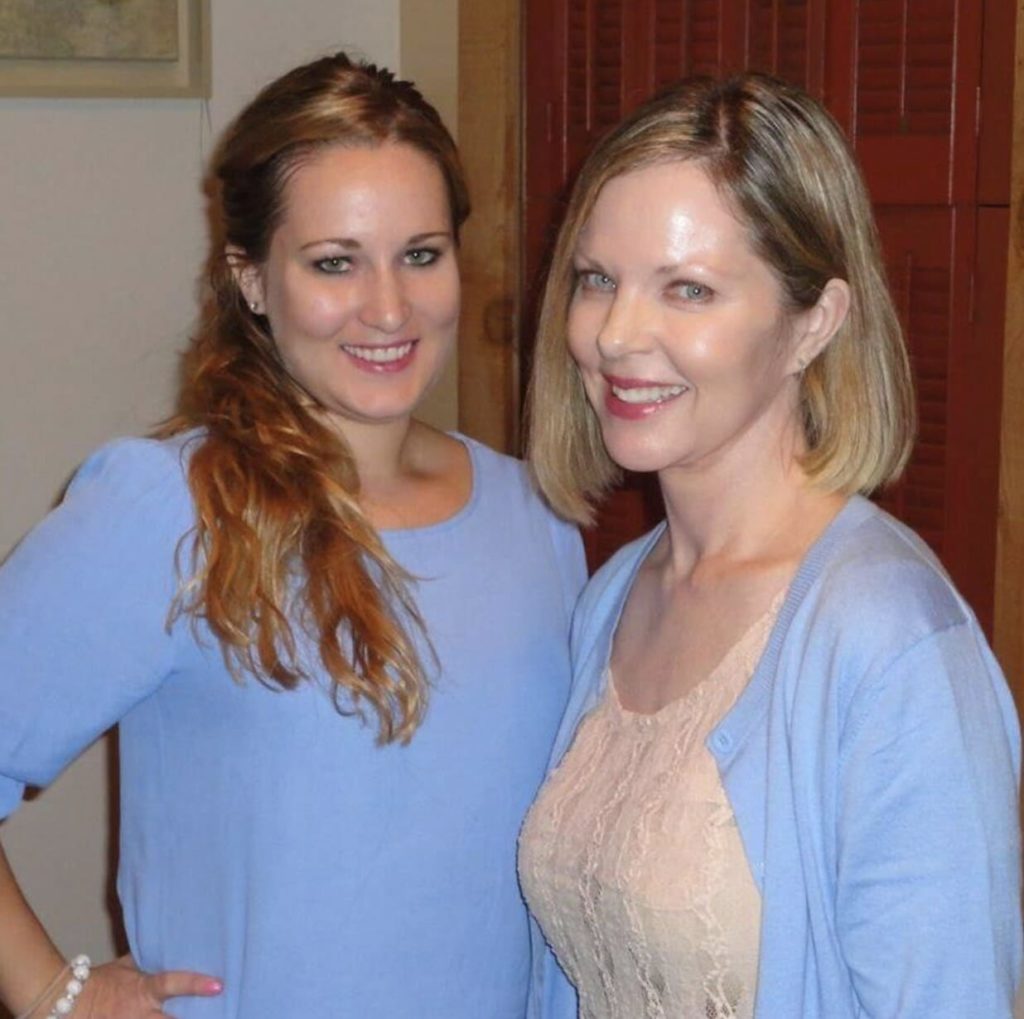
In an interview with E-Talk, Anderson said, “I really stepped away for a long time. That was really for the kids so they would have their own sense of who they were as opposed to being with me.”
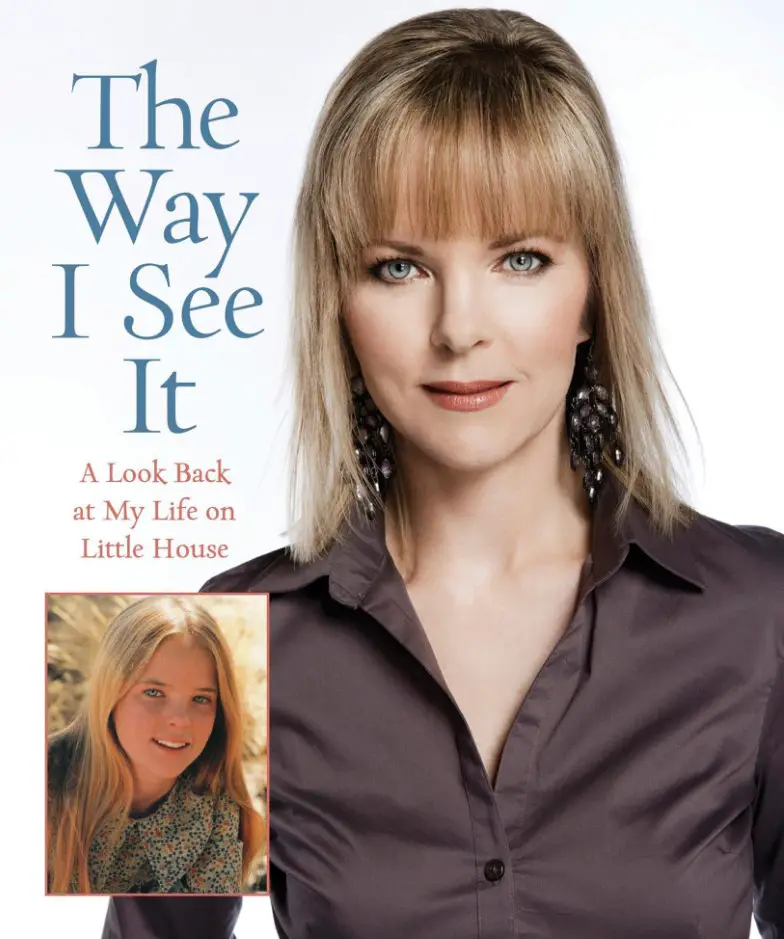
However, Anderson didn’t step back from acting completely, but took small roles over the recent years. Her life-changing experience of being part in a series like “Little House on the Prairie” encouraged her to write a memoir titled The Way I See It: A Look Back at My Life on Little House.
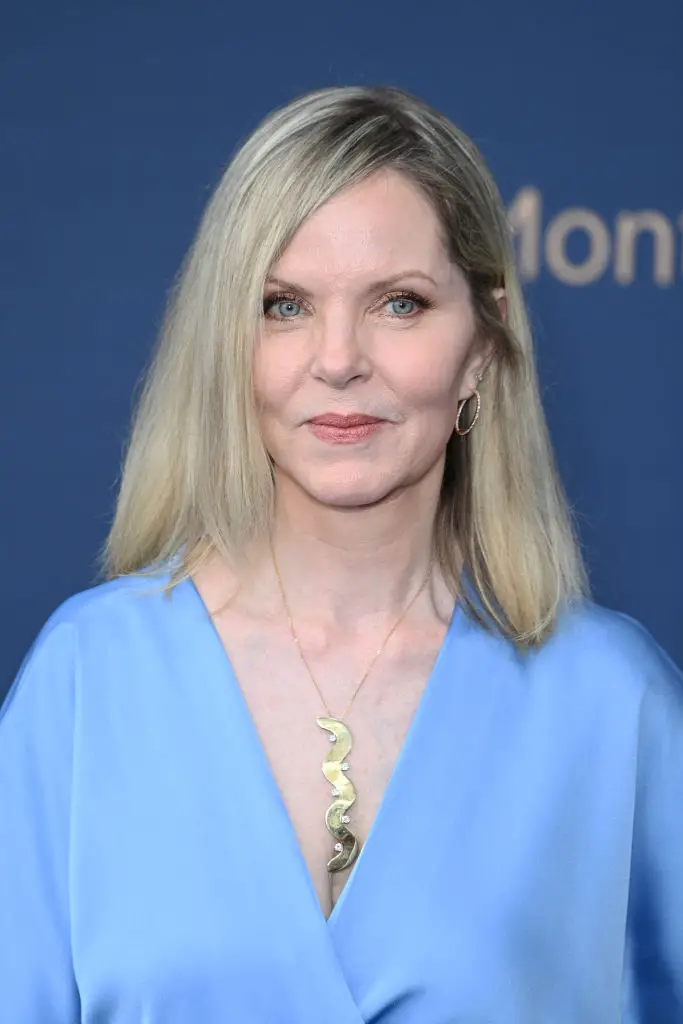
I Overheard My Husband Telling His Friend He’s with Me for My Money – The Lesson I Taught Him Was Harsh
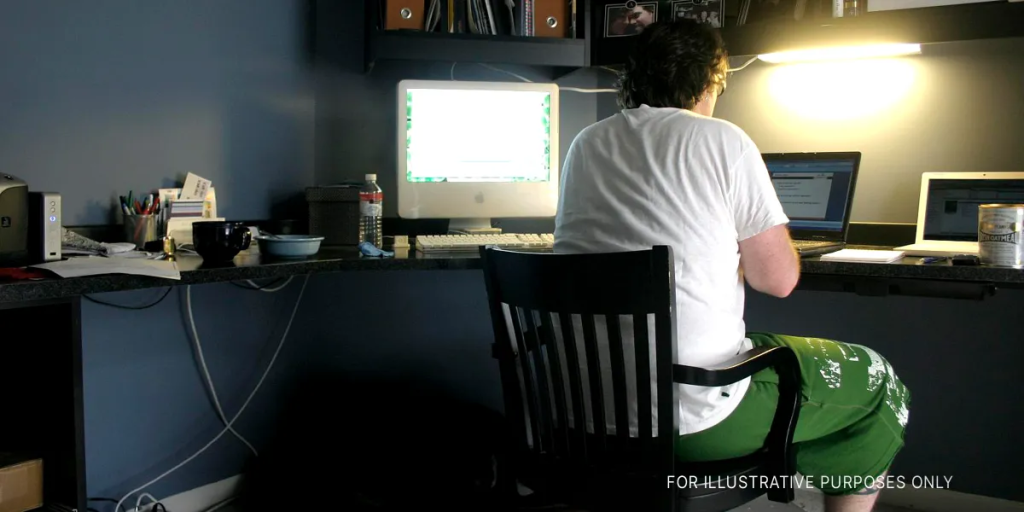
Laura’s seemingly perfect marriage unravels in a single, devastating conversation, revealing a truth that plunges her into the depths of deception. As she confronts the harsh reality of her husband’s betrayal, she crafts a meticulous plan for revenge, navigating through the turbulent waters of love, deceit, and self-discovery.

A woman running in a field during golden hour | Source: Unsplash
Life’s vibrant tapestry is often painted with unexpected colors, weaving the most indelible stories. Mine was a hue I never thought would streak across my world. It was a regular evening that unfolded into a revelation so stark, it felt like the universe itself had slipped on its axis.
Ten years ago, fate, in its mysterious ways, orchestrated a meeting that now feels like a beautifully crafted irony. A party I had no intention of enjoying became the stage for my encounter with John.

A man sitting on a bench | Source: Pexels
There he was, a beacon of charm in a sea of mundane, pulling me from the shadows with a Southern accent that wrapped around my heart like a warm blanket. His demeanor, a blend of earnestness and ease, was impossible to resist.
What followed was a whirlwind romance that felt like it was lifted straight from the pages of a fairy tale. John was everything I had wished for — his kindness, wit, and even his silliness brightened every day.

A couple sitting inside a tepee hut with lights | Source: Unsplash
John understood me in ways I didn’t even understand myself. In his eyes, I was loved, valued, and cherished. What more could I ask for?
Fast forward to last week, a time when the anticipation of an upcoming trip with friends was the most exciting thing on the horizon. Little did I know, my excitement was about to turn into a heart-wrenching epiphany.
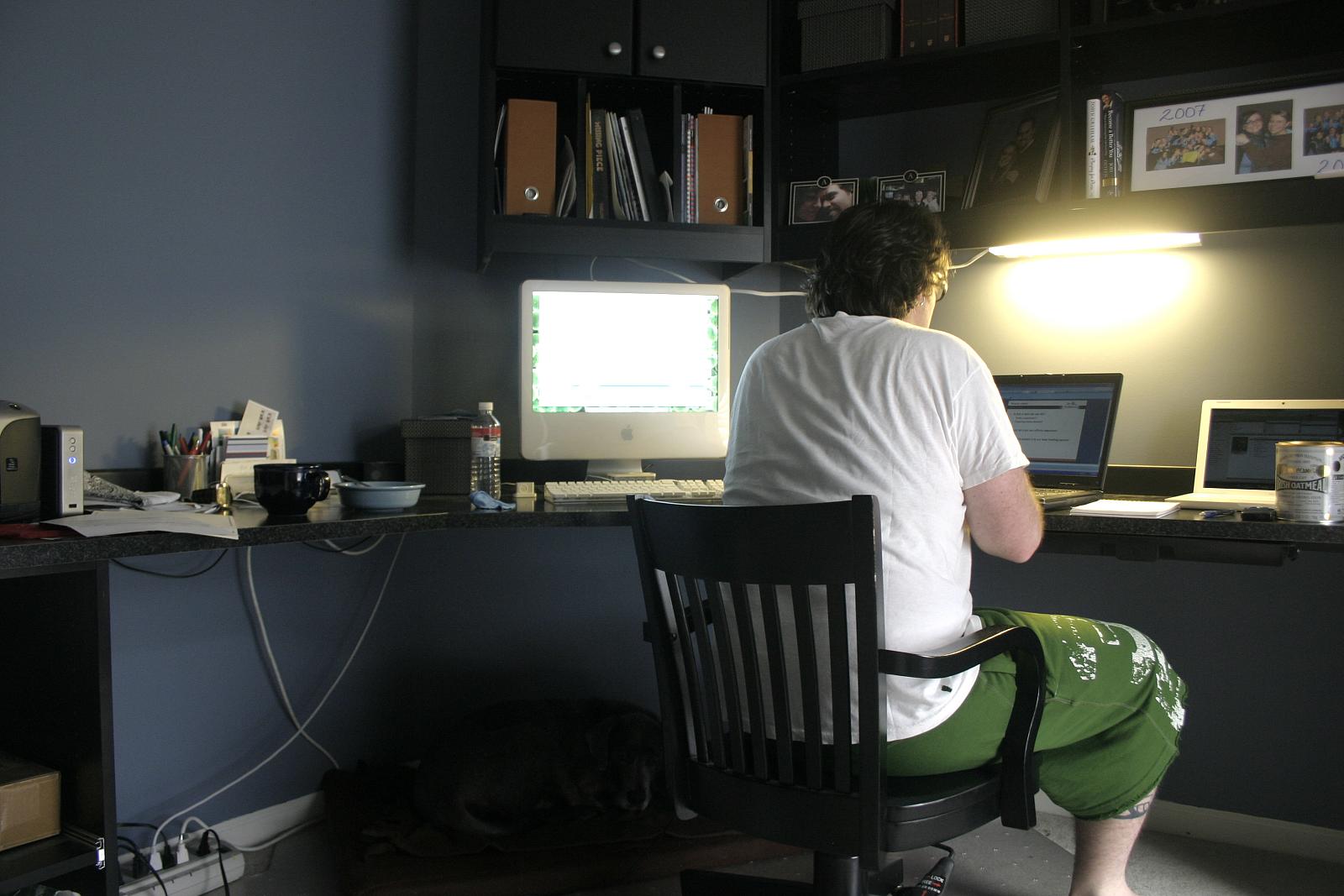
A man using a laptop at home | Source: Flickr
John, engrossed in a video call, was oblivious to my early return from work. I moved silently, not wanting to disturb, but fate had other plans. What I overheard froze me in my tracks and shattered my world into unrecognizable fragments.
John’s friend, Adrian, unknowingly twisted the knife deeper with his words, “Bro, you hit the jackpot with Laura. She’s got the cash. You’re set for life, man. No need to spend a dime on vacations. Laura’s got it all.”
John’s reply was a cold, heartless echo, “You think it’s easy looking at her every morning? That’s the price I pay.”

An angry woman screaming | Source: Pexels
The air left my lungs. The warmth drained from my body. The man I loved, the man I trusted with every fiber of my being, saw me not as his partner, but as a financial safety net. The realization was as painful as it was shocking.
To him, my worth was not in the love I gave but in the money he thought I possessed. And his view of my appearance, something he had always made me feel was beautiful in its uniqueness, was now just another part of his sacrifice.

A woman working on her laptop | Source: Pexels
To think, I am not what many would consider wealthy. Yes, I have a respectable job as a financial analyst, pulling in $300K a year, but it’s a result of grueling 70-hour weeks.
My parents’ recent business success does not translate to an endless stream of money for me. And here I was, thinking we were partners in both love and life, only to find out I was merely a means to an end for John.

A close-up shot on an elderly couple holding flowers | Source: Pexels
With my heart pounding and my mind racing, I made my way upstairs. Lying in bed, the gravity of what I had just discovered weighed heavily on me.
John’s betrayal was not just a breach of trust; it was a calculated deception. Yet, amidst the emotional turmoil, a plan crystallized — not for revenge, but to teach a lesson in value and respect.

A woman lying on the bed | Source: Pexels
The decision was made. I would not confront John, not yet. Instead, I would let the truth reveal itself through actions, not words. In the days that followed, I meticulously crafted my response to his deceit, a response that would teach him the true cost of underestimating someone’s worth.
It was time for John to learn that the value of a person is not in their bank account but in their heart and soul. And this lesson, I vowed, would be one he’d never forget.

A woman with a serious facial expression stretching outdoors | Source: Pexels
In the wake of betrayal, a simmering resolve took root within me. With each passing day, my plan gained clarity, crystallizing into a course of action that felt both righteous and inevitable.
John, blissfully unaware of the storm brewing beneath the calm facade I presented, continued to play the part of the doting husband. It was a performance that might have fooled me once but now served only as a grim reminder of the deception I had lived with.
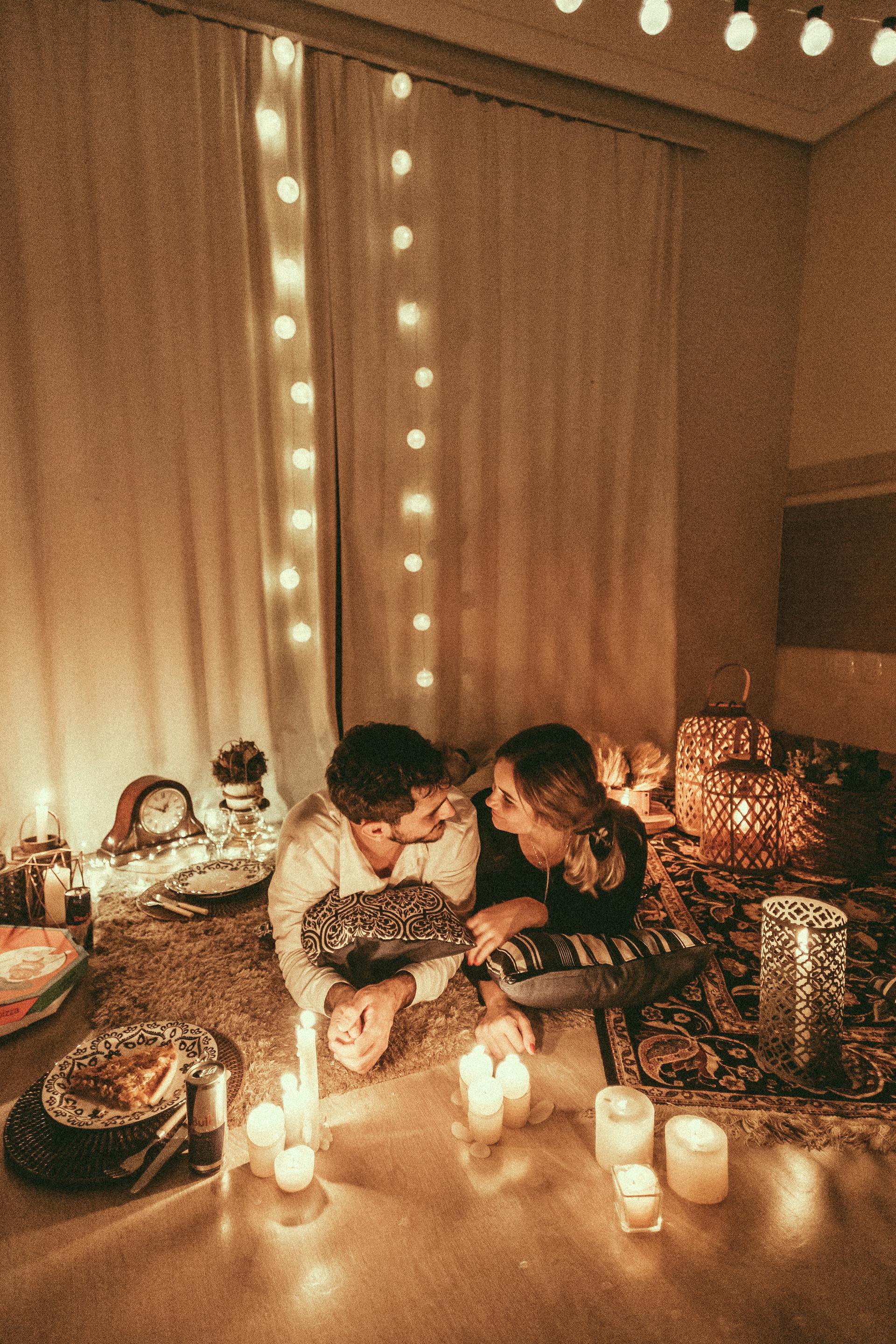
A couple during candlelight dinner | Source: Pexels
Setting the stage for my revelation, I adorned our space with the trappings of a romantic evening — a meticulously prepared dinner, the soft glow of candlelight, and an ambiance of warmth and intimacy. It was against this backdrop that I unveiled the concocted tale of an impending inheritance, watching John’s reaction closely.
“My parents have decided it’s time,” I began, my voice laced with feigned excitement. “They’re planning to transfer a substantial part of their fortune to me. It’s a kind of early inheritance.”
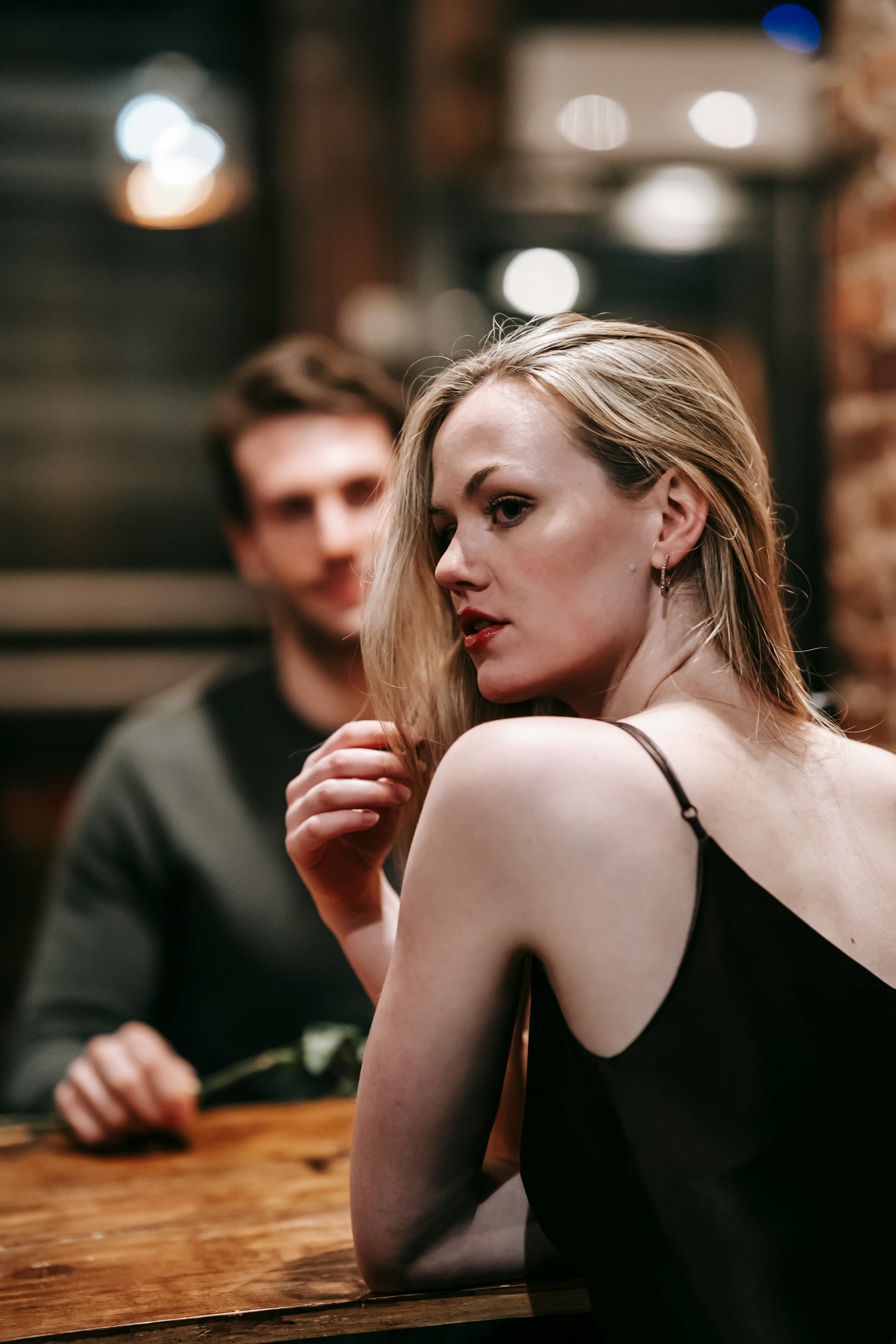
A woman looking over her shoulder while having dinner with a man | Source: Pexels
John’s eyes lit up, a gleam of avarice flickering within. It was the reaction I had anticipated, yet witnessing it firsthand filled me with a cold satisfaction.
“However,” I continued, carefully observing his expression, “there’s a small matter we need to sort out first. My parents insist on us signing a postnuptial agreement. It’s just a formality, really, to ensure that the inheritance is managed properly.”

A person signing a legal document | Source: Pexels
The mention of a postnuptial agreement didn’t deter him; if anything, it seemed to embolden him, likely buoyed by visions of the wealth he thought was within grasp.
“Of course, darling,” he replied, his words dripping with a feigned affection that mirrored my own. “Whatever makes you happy.”
Throughout our conversation, I maintained a careful balance of affection and assertiveness, painting a picture of a future filled with luxury and ease — a future that hinged on his compliance.

A couple holding hands on a table | Source: Unsplash
“And there’s more,” I added, the final lure in my carefully laid trap. “Once everything is settled, I was thinking… we could celebrate. Maybe even get you that new car you’ve been eyeing.”
The hook was set, and John, driven by greed, took it with fervor. His signature on the postnuptial agreement was swift and without hesitation, a testament to his blinding avarice.

A black new BMW 320D | Source: Pexels
With the document securely in hand, I wasted no time. The very next day, I consulted with an attorney, laying out my case and initiating divorce proceedings. My heart, though heavy with the weight of betrayal, was also buoyed by a sense of impending liberation.
When the moment of confrontation finally arrived, John’s demeanor shifted dramatically. Gone was the confident charade, replaced by a man grasping at straws, pleading for understanding and forgiveness.

A male lawyer using a laptop in his office | Source: Pexels
“Laura, please,” he begged, his voice cracking under the pressure of his unraveling world. “You’ve got it all wrong. We can work this out.”
But his pleas fell on deaf ears. He had underestimated me for too long, seeing me through a lens tainted by his biases — a foolish, unattractive woman who would cling to any semblance of love. How wrong he was.

A man sitting on a bench with his head bowed down | Source: Pexels
As I stood firm in the face of his desperation, I saw the dawning realization in his eyes. The realization that he had gravely miscalculated, that the woman he saw as weak and dependent was, in fact, his equal in strength and resolve.
In the end, the divorce was finalized, and with it, the closing of a chapter marked by deception and heartbreak. But from its ashes rose a new beginning, one built on self-respect and the knowledge that I am more than the sum of my financial worth or physical appearance.

A broken heart handing on a wire | Source: Unsplash
As I reflect on the journey, I am reminded of the power of self-worth and the importance of standing up for oneself. John’s betrayal, though painful, served as a crucible, forging a stronger, more resilient version of myself. And for that, I am grateful.
As I embark on a new chapter, one nearly stolen by deceit, I wonder—how would you have navigated this turmoil? What decisions would you have made in my place?

A woman staring at the sea | Source: Unsplash
While you’re thinking about the answer, here’s another story for you:
Husband Expects Pregnant Wife to Juggle Over 40 Hours of Work and Handle All Household Duties — The Family Discovers the Truth on Thanksgiving

A pregnant woman circling her baby bump | Source: Pexels
In November 2021, an anonymous female poster shared a poignant narrative in Reddit’s “AITA” forum. The woman, aged 24, recounted a story about her sister, 32, and her husband, 38, who was the epitome of weaponized incompetence.
Despite juggling a full-time job of over 40 hours a week, managing the entire household, and caring for their four children — 10F, 8M, 5M, and 3F — while pregnant, her sister’s husband contributed nothing.

A little boy standing beside his mom in the kitchen | Source: Pexels
The woman found it astonishing that her sister woke up at 4 a.m., handled breakfast and chores, and got the kids ready for school, all while her husband stayed home, worked, and indulged in video games after she picked the children up. Notably, the woman mentioned that her sister actually earned more than her husband.
What Happened When OP and Her Fiancé Stayed with Her Sister?
While their home was being renovated, the woman and her fiancé, 26, had to stay at her sister’s place for six weeks. Since the couple worked from home, they were able to offer assistance, and the additional support made the woman’s sister feel happy and relieved.
He claimed the incident had made him the laughingstock of his family.

A woman reading a book to her daughters | Source: Shutterstock
The woman contributed by helping her sister with the kids, and her fiancé even drove her to doctor’s appointments. In contrast, the husband only acknowledged his parental role when his family was present, portraying himself as a god-fearing and hardworking father of five.
Despite the woman’s sister desiring to stop having children after the last baby, her husband insisted on having more boys. The original poster was concerned not only for her sister but also for her children, especially as the oldest began to recognize the situation and attempted to assist. However, OP’s sister, driven by pride, adamantly refused to let her child take on any responsibilities.

A scared little girl hearing her parents argue in the background | Source: Shutterstock
OP admitted that she never got along with her brother-in-law, and his behavior had persisted since the birth of his eight-year-old son. Despite attempts to discuss the option of leaving, her sister was resistant and feared that her children would grow up in a broken home.

A happy couple with their three kids | Source: Shutterstock
Her perspective on divorce differed from OP’s, as her own experience with their parents’ divorce was vastly dissimilar. She believed that her kids needed both their mom and dad together and was reluctant to consider the potential benefits of a divorce, given her situation.
The Thanksgiving Dinner
The weekend before OP shared her Reddit account, her sister and brother-in-law hosted a pre-Thanksgiving potluck, where both their families were in attendance. Anticipating her brother-in-law’s lack of assistance, OP had stayed with her sister a few days prior to help.
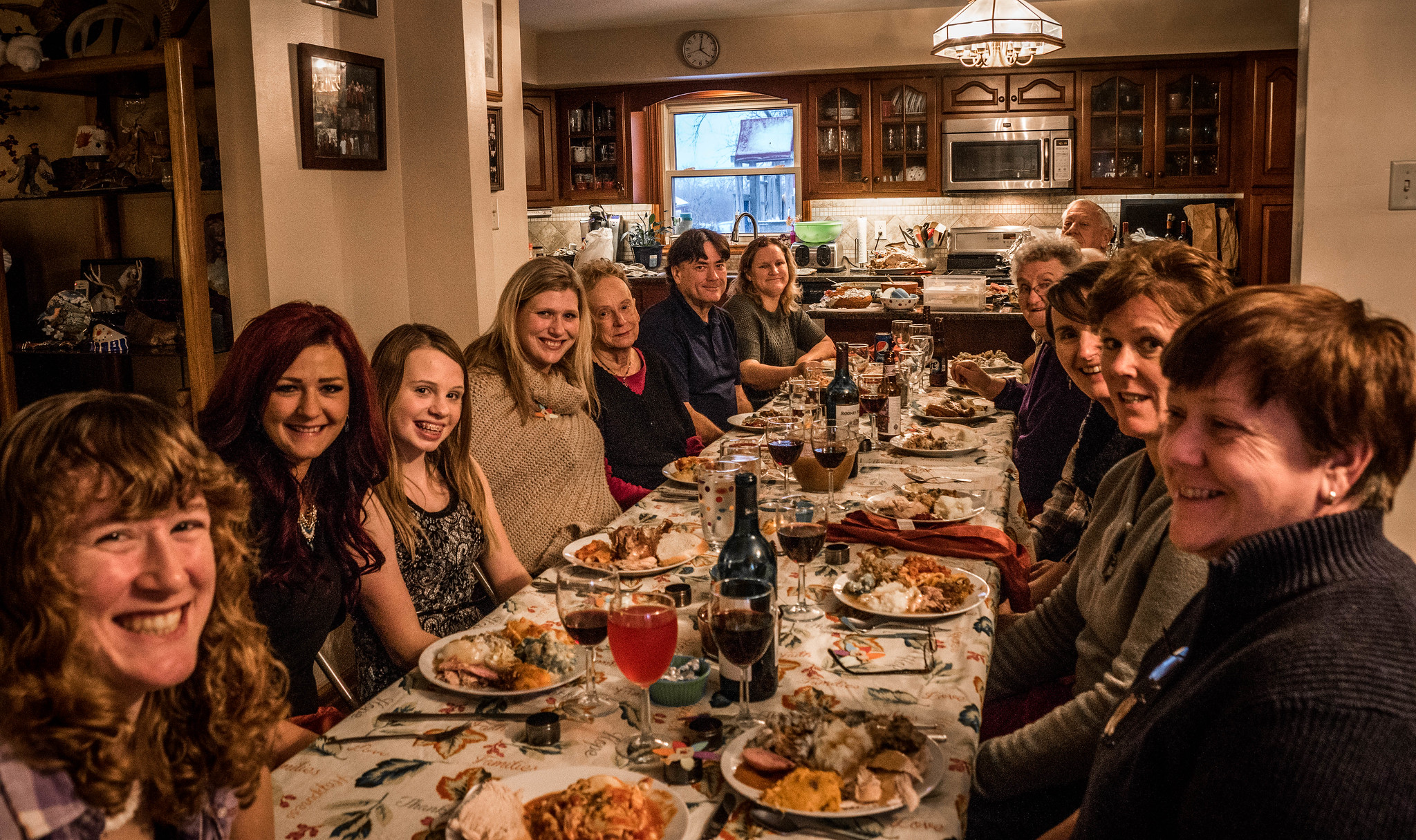
Family members gathered for Thanksgiving dinner | Source: Flickr
During dinner, as the conversation flowed, OP stated how she and her fiancé were trying to start a family. At this point, her BIL made an “off-handed comment” to the woman’s fiancé about the challenges of fatherhood. This remark triggered the woman, prompting her to retort, “[Like] you would know.”
Startled, he inquired about her comment, and she unleashed her pent-up frustration, labeling him a pathetic excuse for a man who left her 8-month pregnant sister to handle everything for their family. OP passionately expressed her sentiments for nearly ten minutes, leaving her BIL visibly uncomfortable in his seat. After that, she exited the scene.

A woman hugging another woman to comfort her | Source: Shutterstock
Later that night, OP received a call from her sister, who thanked her for standing up for her and conveyed appreciation for her support. But the very next day, OP received a nasty message from her BIL, accusing her of being a terrible person. According to him, her supposed lie in front of his family had angered his mom, who, in response, decided to move in with them to assist her sister.

An upset man sitting by the river | Source: Pexels
He claimed the incident had made him the laughingstock of his family. Despite his perspective, he firmly believed that she was at fault for the consequences. After everything that happened, OP couldn’t help but wonder if she was wrong for calling out her BIL for his questionable behavior.
This work is inspired by real events and people, but it has been fictionalized for creative purposes. Names, characters, and details have been changed to protect privacy and enhance the narrative. Any resemblance to actual persons, living or dead, or actual events is purely coincidental and not intended by the author.
The author and publisher make no claims to the accuracy of events or the portrayal of characters and are not liable for any misinterpretation. This story is provided “as is,” and any opinions expressed are those of the characters and do not reflect the views of the author or publisher.
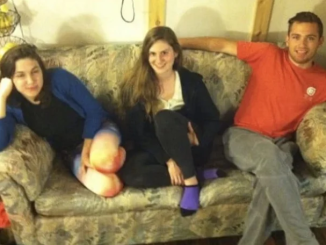
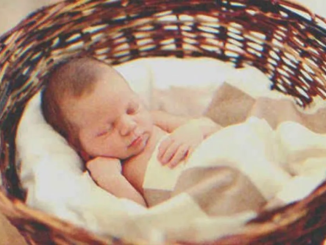

Leave a Reply